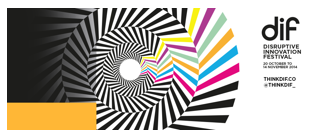Higher Computing Science – Conference Report
Background information
Education Scotland held a conference on Thursday 29 May 2014 as part of the ongoing support of the new national qualifications. The need for this national event became clear following a series of meetings early in 2014 between the Technologies team at Education Scotland and the following local authorities:
- North Lanarkshire
- East Ayrshire
- West Dunbartonshire
- South Lanarkshire
Discussion with the local authority representatives focused mainly on the implications of moving from 2 Higher Grade courses in this area of the curriculum to one new higher. The opportunity to up-date the content was quite rightly taken. However this has resulted in a significant amount of new content which has resulted in practitioners being uneasy about their ability to deliver the subject content for this new qualification. In order to evaluate the scale of the difficulties Education Scotland established a Short Life Working group for Computing Science to discuss the best ways to address the issues that were being highlighted. This resulted in two main areas of activity
- ‘crowd sourcing’ of support materials
- organising and planning a national conference.
The main aims of the conference were to
- Examine a range of appropriate approaches to learning and teaching
- Exemplify a significant amount of new course content
- Continue to build a successful learning community for computing science
- Examine other areas for development to be addressed over the next academic year
Conference organisation and delivery
The programme for the event was a mix of keynote presentations and workshop sessions. Gerry Docherty set the scene for the conference. He is currently Chief Executive of Smarter Grid Solutions a fast-growing company, with operational bases in Glasgow, London and New York. He leads on the implementation of the ICT and Digital Technologies Skills Investment Plan. This plan makes explicit the need for developing skills in this key area of the Scottish economy. It also makes clear connections to the industry working much more closely with the education sector. From an education perspective, Education Scotland see this report as being a powerful driver behind the support we are going to be giving this area of the curriculum over the next year or two. Gerry did a tremendous job setting the scene for the conference and many of the issues he raised in the morning were discussed again in the closing plenary.
Peter Donaldson set the scene for the afternoon sessions by outlining the aims and objective of PLAN C (Professional Learning and Networking for Computing). He explained that the Core PLAN C team are connected to 50 lead teachers who are then connected to a further 10-25 teachers in their local area with industry, HE and FE encouraged to link in taking a more strategic approach to supporting work in this area of the curriculum.
The workshops were delivered by 9 practitioners identified by the Computing Science Working Group and delegates were able to attend 3 workshops over the course of the day. It was planned that each of these workshops would focus on learning and teaching as well as new course content.
Evaluations
The evaluations and conversations with various stakeholders during and after the event indicate these aims were met. The table below indicates how successful the event was with respect to the evaluation forms returned at the end of the event. This is based on 66 returned evaluations. In total there were 125 delegates in attendance and 30 out of 32 local authorities had representatives and there was representatives from the private sector and from colleges.

The key statistics from the table above are
- 92% of delegates agreed that ‘meeting and exchanging ideas with colleagues was valuable’.
- 94% of delegates agreed that ‘the workshops sessions and discussions were helpful’
- 89% of delegates agreed that ‘the suggested approaches to learning and teaching were appropriate’
- 67% of delegates agreed that ‘a significant amount of new content was exemplified’
The figure of 67% in the final statistic is probably explained by the fact that the delegates were approaching the new content from a slightly different teaching background. These being either a Computing Science or Information Systems background. It is also an indication that much more needs to be done to support teachers in this area. One of the comments from the delegates also helped explain this
‘Still need more detail. Some subjects were over-subscribed, more access to these would be helpful.’
Further comments from delegates were very helpful and they focused on the following key areas.
Ongoing Support
The delegates recognise that this is just the start
‘More events like this to show ideas and methods. Better continued support. Direct guidelines to local councils as to how staff should be supported – reinforce the importance of computing science.’
‘We are still unclear about the depth of coverage and are simply guessing. Fortunately we have a year to get the handle on this so hopefully more information will come out from SQA and yourselves.’
‘More meetings where we can gather, talk face to face and get away from being lots of ‘wee islands’ – the sessions were excellent and I am away feeling muchh more confident about the higher. Anything for ISDD would be great.’
Professional Learning Community
While computing teachers have an excellent ‘professional learning community’ through CompEdNet there is still more that we can do.
‘Local ES events welcome. How can we develop a shared agenda?’
‘More of the same please. Always good discussions + inspiration.’
The role of key organisations
In the context of on-going work across education and the ICT sector this comment is pertinent
‘Very interesting and useful event. Great speech by Gerry Docherty’.
Education Scotland and SQA are still expected to do more in this area too.
‘SQA arrangements still require more guidance on depth of treatment required.’
‘More detail on the support team at Education Scotland. Who’s our contact? Who does what?’
Summary/Conclusions
Education Scotland would like to thank the Computing Science Working Group for their support in making this conference a great success. The conference would not have been possible without their knowledge and understanding of the computing science context in local authorities and in schools. Workshop presenters did a superb job and the level of ‘interactivity’ in the sessions was impressive.
The following comment is one that we should finish on
‘Absolutely fantastic, we need more of these to get up to speed.’
It may be worth considering following this conference up in May 2015 to cover other aspects of the new higher but also have a focus on the new ‘Advanced Higher’.
Next steps
The following suggestions have been made as to how we build on the success of the conference
– Work with the CompedNet practitioner network to identify the features within Glow that will support what they are doing through their professional on-line community. This will focus on the added value Glow brings that is different from what’s on offer already through CompEdNet e.g. Glow TV, Glow Meets etc
– Create user stories (identifying practice that’s worthy of sharing)
– Monthly Computer Science update (publication, 2 sides A4)
– Host a series of regional events to roll out the information from the conference
– Host an online national conferences.
Education Scotland is aware that more support is required for computing science and this will continue over the next academic year.
 What’s the thinking behind it?
What’s the thinking behind it?














































